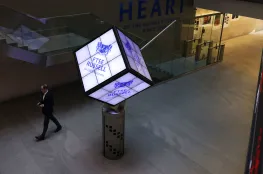With a new influx of federal funding, Connecticut plans to bolster its energy grid in response to the severe storms that have left tens of thousands without power over the past year. This initiative comes shortly after President Joe Biden's visit to hurricane-stricken Florida, where he announced over $2 billion in allocations from the U.S. Department of Energy for 38 projects spanning 42 states. This funding, part of the Grid Resilience and Innovation Partnerships program under the Bipartisan Infrastructure Law, aims to upgrade nearly 1,000 miles of transmission lines nationwide, enhancing grid capacity and efficiency to meet increasing electrical demands.
Maria Robinson, director of the U.S. Department of Energy's Grid Deployment Office, highlighted the ongoing challenges posed by extreme weather and stressed the administration's commitment to ensuring a reliable and affordable power grid. Connecticut is set to receive $77 million for two projects focused on speeding up its transition to green energy. One project will channel $27.5 million to Elevate Renewables, a renewable energy firm, for the development of a utility-scale energy storage facility at the Devon Generating Station in Milford. This peaking power plant, acquired by ArcLight Energy Partners Fund in 2021, will be transformed from a fossil-fueled station to a battery energy storage system.
Elevate Renewables, backed by ArcLight Capital Partners, plans to use brownfields statewide, including stations in Middletown, Montville, Bridgeport Harbor, and New Haven Harbor, for its battery systems. These large-scale battery storage units aim to capture and distribute excess renewable energy, such as solar or wind, maintaining a steady power supply to stabilize generation fluctuations. This initiative is intended to quicken the addition of energy to the grid, enhance reliability and resilience, and support technological innovations to ensure affordable, renewable energy access for Connecticut residents.
Katie Dykes, DEEP commissioner, expressed enthusiasm for the federal backing of the Innovative Inertia project, which repurposes existing generating facilities with new battery systems to boost grid stability and foster a cleaner energy landscape. The second project, operated by GridUnity, intends to expedite the processes of reviewing, approving, and commissioning new energy interconnections. Utilizing advanced analytics, machine learning, and cloud computing, GridUnity's DIGITAL platform seeks to replace fragmented communication methods with a centralized software solution.
This effort aims to streamline solar and wind power integration into the grid, significantly reducing the time required for projects to progress through the planning stages by over a year according to company statements.
























